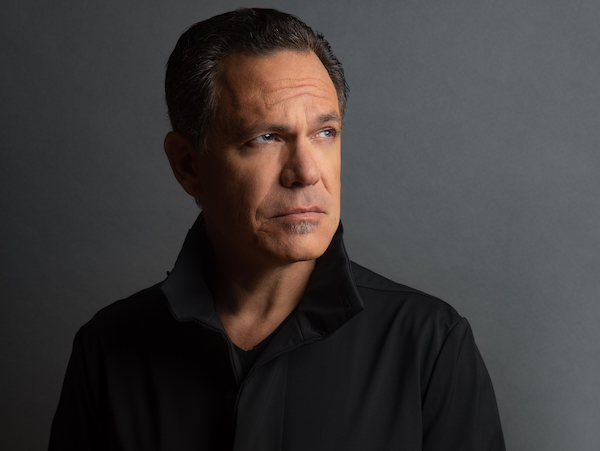Jan 13, 2026 2:09 PM
More Trump-Kennedy Center Cancellations
The fallout from the renaming of the John F. Kennedy Center for the Performing Arts to include President Donald…

Kurt Elling’s latest recording finds the vocalist collaborating with pianist Danilo Pérez. Secrets Are The Best Stories (Edition) is set for release April 3.
(Photo: Anna Webber)Kurt Elling’s work as a vocalist and poet-cum-lyricist always has exerted depth; vocal frippery isn’t his style. So, it comes as a surprise that he digs even deeper into eloquence on Secrets Are The Best Stories, a new disc set for release on April 3.
The album—Elling’s first collaboration with pianist Danilo Pérez—tackles contemporary social crises and pairs the Grammy-winning talents with a raft of first-call performers, including altoist Miguel Zenón and drummer Johnathan Blake. “Song Of The Rio Grande (For Oscar And Valeria Martínez-Ramírez),” which premieres below, contains many of the elements that mark the project overall: Pérez’s vibrant harmonic vision, Elling’s trenchant lyrics, and the duo’s easy rapport in the studio. (While many of the album’s tracks feature other players, Elling and Pérez will tour the album as a duo this spring and summer.)
In a recent phone call with DownBeat, the vocalist discussed the new album, why an indie-jazz label serves him best at this point in his career and the pressures that socially aware artists might face today.
The following has been edited for length and clarity.
The title of your new album, Secrets Are The Best Stories, is thought-provoking. What does it mean to you?
First, that listening very deeply is the basis of any creative response to life. It seems to me that if I were conscious all the time as an individual, that I would notice all the poems and songs that are available in each moment. That’s one thing. The second is that the truth seems to be playing a game of hide-and-seek these days. There are competing narratives for reality in a way that is much more dangerous and profound than in past years. The truth among the narratives—that’s another form of secrecy.
Can you talk about “Song Of The Rio Grande (For Oscar And Valeria Martínez-Ramírez)” and what statement it’s making?
Let’s say that these lyrics grew out of compassion and a broken heart. Compassion for the people who are suffering, and a broken heart for our country, for what we’re having to endure as citizens at this point. And what we’re going to have to do to reclaim—I don’t even know what to call it—a sense of optimism, I guess. That would be a place to start.
Do you see jazz musicians as playing a role in raising awareness and helping to heal the social issues you’re addressing on this record?
That’s for each musician to say for themselves, you know, what their response [to social issues] is going to be. In my own case, it’s taken me a little bit of time. Perhaps I should have been doing this kind of work all along. I don’t know. There’s always been injustice. There’s always been suffering. And there have always been people on the receiving end. I should have been on their side sooner.

Belá Fleck during an interview with Fredrika Whitfield on CNN.
Jan 13, 2026 2:09 PM
The fallout from the renaming of the John F. Kennedy Center for the Performing Arts to include President Donald…

Peplowski first came to prominence in legacy swing bands, including the final iteration of the Benny Goodman Orchestra, before beginning a solo career in the late 1980s.
Feb 3, 2026 12:10 AM
Ken Peplowski, a clarinetist and tenor saxophonist who straddled the worlds of traditional and modern jazz, died Feb. 2…

The success of Oregon’s first album, 1971’s Music Of Another Present Era, allowed Towner to establish a solo career.
Jan 19, 2026 5:02 PM
Ralph Towner, a guitarist and composer who blended multiple genres, including jazz — and throughout them all remained…

Rico’s Anti-Microbial Instrument Swab
Jan 19, 2026 2:48 PM
With this year’s NAMM Show right around the corner, we can look forward to plenty of new and innovative instruments…

Richie Beirach was particularly renowned for his approach to chromatic harmony, which he used to improvise reharmonizations of originals and standards.
Jan 27, 2026 11:19 AM
Richie Beirach, a pianist and composer who channeled a knowledge of modern classical music into his jazz practice,…